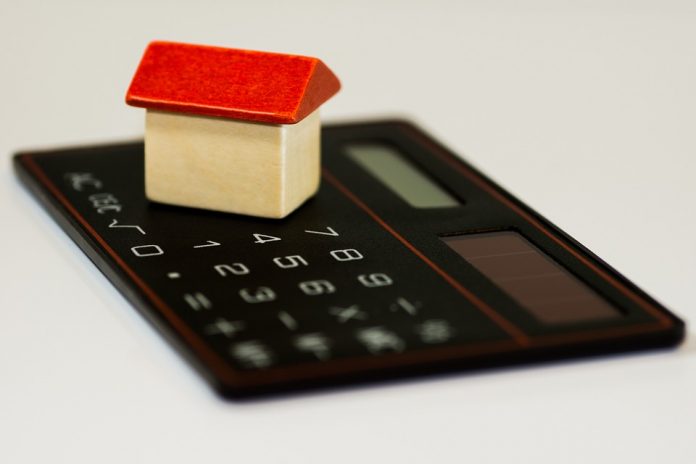A mortgage loan is a loan secured by real property. The word mortgage is a Law French term meaning “death contract,” meaning that the pledge ends (dies) when the obligation is fulfilled, the property is sold, or the property is taken through foreclosure. A home buyer or builder can obtain financing (a loan) either to purchase or secure against the property from a financial institution, such as a bank, either directly or indirectly through intermediaries. Features of mortgage loans such as the size of the loan, maturity of the loan, interest rate, method of paying off the loan, and other characteristics can vary considerably.
Basic Terminology
- Blended Payments: Payments consisting of both a principal and an interest component, paid on a regular basis (e.g. weekly, biweekly, monthly) during the term of the mortgage. The principal portion of payment increases, while the interest portion decreases over the term of the mortgage, but the total regular payment usually does not change.
- Borrower: the person borrowing who either has or is creating an ownership interest in the property.
- CMHC – Canada Mortgage and Housing Corporation: The National Housing Act (NHA) authorized Canada Mortgage and Housing Corporation (CMHC) to operate a Mortgage Insurance Fund which protects NHA Approved Lenders from losses resulting from borrower default.
- Deed (Certificate of Ownership): The document signed by the seller transferring ownership of the home to the purchaser. This document is then registered against the title to the property as evidence of the purchaser’s ownership of the property.
- Foreclosure: A legal procedure whereby the lender eventually obtains ownership of the property after the borrower has defaulted on payments. The possibility that the lender has to foreclose, repossess or seize the property under certain circumstances is essential to a mortgage loan; without this aspect, the loan is arguably no different from any other type of loan.
- Refinancing: Renegotiating your existing mortgage agreement. May include increasing the principal or paying out the mortgage in full.
- Renewal: At the end of a mortgage term, the mortgage may “roll over” on new terms and conditions acceptable to both the lender and the borrower. This is known as renewing a mortgage. Otherwise, the lender is entitled to be repaid in full. In this case, the borrower may seek alternative financing.
- Interest: a financial charge for use of the lender’s money.
- Lender: any lender, but usually a bank or other financial institution that lend money to you.
- Mortgagee and Mortgagor – The lender is the mortgagee and the borrower is the mortgagor.
- P.I.T.: Principal, interest and taxes. Together, these make up the regular payment on a mortgage if you elect to include property taxes in your mortgage payments
- Principal: the original size of the loan, which may or may not include certain other costs; as any principal is repaid, the principal will go down in size.
Types of Mortgages
There are a few types of mortgages.
- Conventional Mortgage: A mortgage that does not exceed 80% of the purchase price of the home. Mortgages that exceed this limit must be insured against default, and are referred to as high-ratio mortgages.
- Closed Mortgage: A closed mortgage cannot be paid off, in whole or in part, before the end of its term. With a closed mortgage you must make only your monthly payments — you cannot pay more than the agreed payment. A closed mortgage is a good choice if you’d like to have a fixed monthly payment. With it you can carefully plan your monthly expenses. But, a closed mortgage is not flexible. There are often penalties, or restrictive conditions, if you want to pay an additional amount. A closed mortgage may be a poor choice if you decide to move before the end of the term, or if you want to benefit from a decrease of interest rates.
- High Ratio Mortgage: If you don’t have 20% of the lesser of the purchase price or appraised value of the property, your mortgage must be insured against payment default by a Mortgage Insurer, such as CMHC.
- Open Mortgage: A mortgage which can be prepaid at any time, without requiring the payment of additional fees. It is flexible: you can pay off part of it or the entire amount at any time without penalty. An open mortgage can be a good choice if you plan to sell your home in the near future. It can also be a good choice if you want to pay off a large sum of your mortgage loan.
Amortization Period
The length of time over which all regular payments would pay off the mortgage. This is usually 25 years for a new mortgage, however can be greater, up to a maximum of 30 years. The longer the amortization, the lower your mortgage payments, but the more interest you pay in the long run.
Mortgage Term
Mortgage term is the number of years or months over which you pay a specified interest rate which is fixed. Actually, it is the length of the current mortgage agreement. Terms usually range from six months to 10 years. It protects you from interest rate increases. A mortgage may be amortized over a long period (such as 30 years) with a shorter term (six months to five years or more). After the term expires, the balance of the principal then owing on the mortgage can be repaid or a new mortgage agreement can be entered into at the current interest rates. If each mortgage term is five years, and the mortgage is amortized over 20 years, you will have to renegotiate the mortgage four times (every five years). Your lender will tell you about the term options for the mortgage.
Mortgage Interest Rates
Mortgage interest rates can be fixed, variable or adjustable.
- Fixed-Rate Mortgage: A mortgage for which the rate of interest is fixed for a specific period of time (the term) and will not increase for the term of the mortgage.
- Variable Rate Mortgage: A mortgage for which the rate of interest may change if other market conditions change. This is sometimes referred to as a floating rate mortgage. A variable rate fluctuates based on market conditions but the mortgage payment remains unchanged.
- Adjustable Mortgage Interest Rate: With an adjustable rate, both the interest rate and the mortgage payment vary, based on market conditions.
Mortgage Loan Insurance
Mortgage loan insurance protects lenders against mortgage default, and enables consumers to purchase homes. The CMHC Mortgage Loan Insurance premium is calculated as a percentage of the loan and is based on the size of your down payment. The higher the percentage of the total house price/value that you borrow, the higher percentage you will pay in insurance premiums. If you make less than a 20% down payment, you have a high-ratio mortgage. With a high-ratio mortgage your lender will need mortgage loan insurance. Mortgage loan insurance lets you buy a home with a minimum down payment of 5%. If you need mortgage loan insurance for your home, you may be eligible for the following CMHC programs:
- Mortgage Loan Insurance provides insurance on loans granted by approved lenders for the purchase, construction, renovation, or refinancing of single-family homes or multiple rental housing.
- On-Reserve Loan Insurance provides insurance on loans that approved lenders grant for the purchase, construction, renovation, or refinancing of single-family homes or multiple rental housing on reserves.
- If you purchase an energy-efficient home or make energy-saving renovations, CMHC offers a 10% mortgage loan insurance premium refund and an extended amortization period.
To be qualified for a mortgage you have to have a good credit history.


















